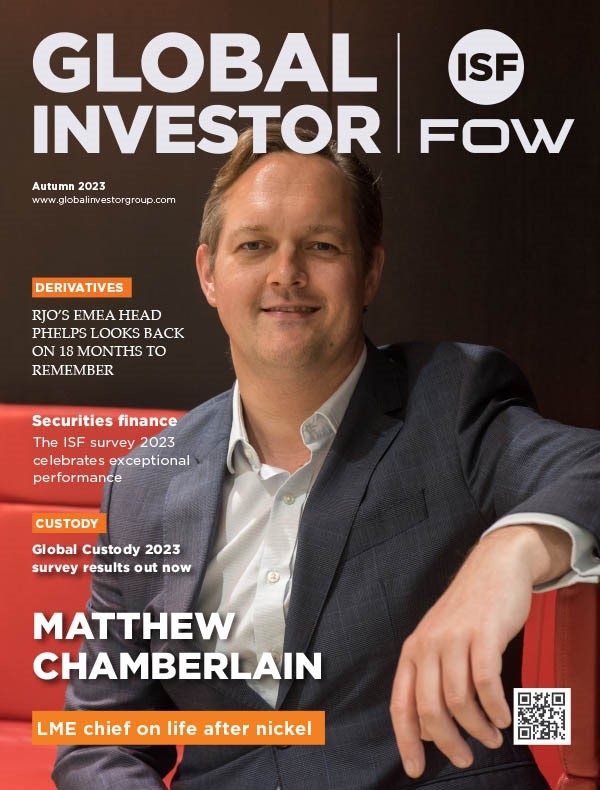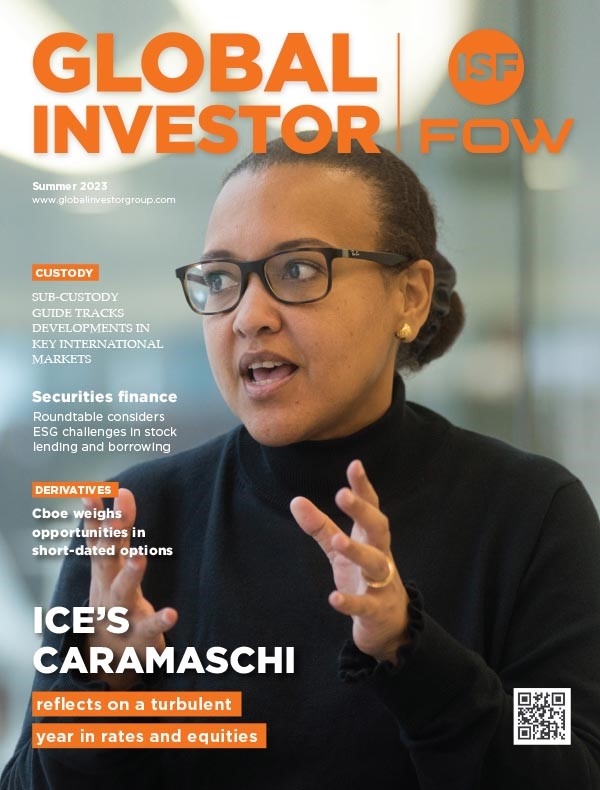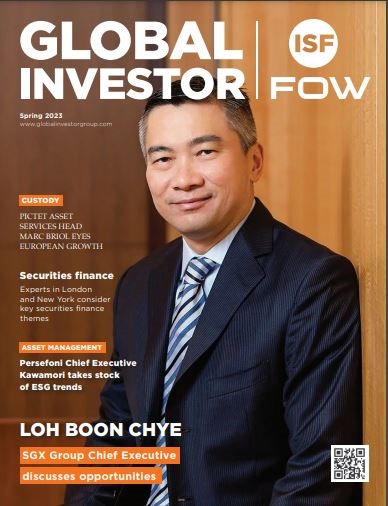Natixis: London expansion

Why have you expanded your London operation recently?
Emmanuel: The increased coverage in London is a result of the broader growth of Natixis’ equity finance business globally. Across Asia, Europe and the US, we have added to our product offering and have enhanced the mechanism by which we distribute. Across both structured and derivative flow products, we challenge ourselves to provide quicker and more optimal solutions for our clients.
Better servicing our UK clients was of course a primary objective, and concurrently our intent is to utilise London as an entry point to Europe for all of our clients.
Our London desk is the keystone of a stronger global platform with a more integrated approach to providing solutions across different regions. The London Equity Finance desk is fully aligned with our Paris headquarters and, in coordination with Asia and the Americas, we contribute to source and distribute our trading axes. We can assist clients who wish to develop outside of their continent of origin and liaise within our global product offering, to deliver a customised solution.
Romuald: In a way, I am testament to Natixis’ push towards increasing our equity derivatives business globally, having joined in December 2015 in a product specialist role in Paris. Indeed, this is an ideal location for us to participate in the global markets and capture more market share. With the proximity to Paris, we can leverage home country support, yet be physically on the ground to serve our clients.
How does the London office fit in the wider Natixis operation?
Ian: The London office is growing at a time where we are also focusing on the greater integration of our regional businesses. Historically our desks in these regions operated, as was typical for the industry at the time, largely as silos. Today, however, it is clear that our one book model and greater interaction across regional desks has improved the service offering to all of our clients.
As a French company, our group operates from the hub of the Paris office. That said, many of our North American clients, for example, with Japanese or German counterparties, are more likely to have representatives in London than in continental Europe.
Emmanuel: Indeed, as London has grown, the link with the Paris hub has strengthened, which in turn has supported a more integrated strategy. Through establishing a stronger London branch, we have bridged the gap between the regional branches. This geographic integration has been mirrored by an integration of service lines.
Increasing the level of communication and interoperability between our three major business lines – forward trading, securities finance and collateral management – makes us more flexible. What’s more, it increases our capacity to build a specific solution around a client’s need in a short time frame.
Romuald: Both of these points – greater customisation and speed of design – have become increasingly important to compete in the global marketplace.
How does your small size affect the type of service you can provide?
Emmanuel: The first point to make is that we’re not small at all! We are perhaps not as large as some but do enjoy a very strong balance sheet and an S&P A-rating. We are a solutions provider, priding ourselves on the ability to be agile, navigating the clients requests, market and regulatory constraints, and delivering value-added proposals. This is particularly important at the moment as the industry – and what clients need – is changing rapidly.
Romuald: We have a streamlined management hierarchy. We can combat the delays that might occur in larger banks where innovative ideas have to be communicated through a long-winded command chain – including different offices and different time zones. By comparison, the decision making in Natixis is dynamic, meaning we can be responsive to our client’s changing needs.
Ian: The second point relates to our efforts for a more holistic approach. Certainly, this aspect has been relatively easy to achieve thanks to our staff selection. Experience abroad is a key criteria. It ensures our adaptability to servicing our clients wherever they’re from. For example, prior to launching our activity in London in 2012, Emmanuel worked in Paris, Frankfurt and New York within the EQF product line.
Emmanuel: Ian is another example of that having worked in Paris, led the Asian based efforts, and ultimately returning to Paris to focus on our global, commercial initiatives.
We have consciously grown at a steady and modest pace, which has ensured less volatility and more versatility. How and why have clients’ needs changed recently?
Emmanuel: The slew of regulation and the shifting business models of the major banks has meant that we have seen a shift away from trading operations and towards customised client solutions. The low yield environment, exacerbated by a squeeze of the repo rate spread between equities and higher quality assets, has further accelerated this trend. As clients search for yield or feeproducing products, they have shifted away from low margin, vanilla trades.
Ian: This connects to the first point about customisation. Increasingly, the clients with whom we trade are looking for more structured products – to cater to the new regulatory and risk constraints that have arisen since the financial crisis. Broadening the scope of tools for clients to utilise, and in so doing providing them with a more integrated one-stop-shop, has become an increasing focus.
What evidence do you have that your internal changes mean a better service for clients?
Romuald: One indicator of how the new organisational approach of the firm is better servicing our clients is the greater speed with which we are able to design new products for them.
Emmanuel: Following the drop in activity in the repo market, clients were looking for alternative products with which they could generate a constant and reliable yield. We designed a collateralised note, similar to a mediumterm note, which proved very popular. To echo the earlier point about how our identity shapes our service, building this collateralised note was possible thanks in part to the advantages of our organisation.
We cleared the internal approval process quickly, allowing us to roll out a new product for our clients in a matter of months. More such innovation and prompt market delivery are to follow shortly.
Ian: I think the fruits of these developments are increasingly evident in the quality of our relationship management, which gained us an award from Global Investor/ISF recently. The real proof lies with our clients, particularly their greater readiness to phone us with a problem, confident we will come up with innovative solutions and quickly move to implement them.
Found this useful?
Take a complimentary trial of the FOW Marketing Intelligence Platform – the comprehensive source of news and analysis across the buy- and sell- side.
Gain access to:
- A single source of in-depth news, insight and analysis across Asset Management, Securities Finance, Custody, Fund Services and Derivatives
- Our interactive database, optimized to enable you to summarise data and build graphs outlining market activity
- Exclusive whitepapers, supplements and industry analysis curated and published by Futures & Options World
- Breaking news, daily and weekly alerts on the markets most relevant to you



